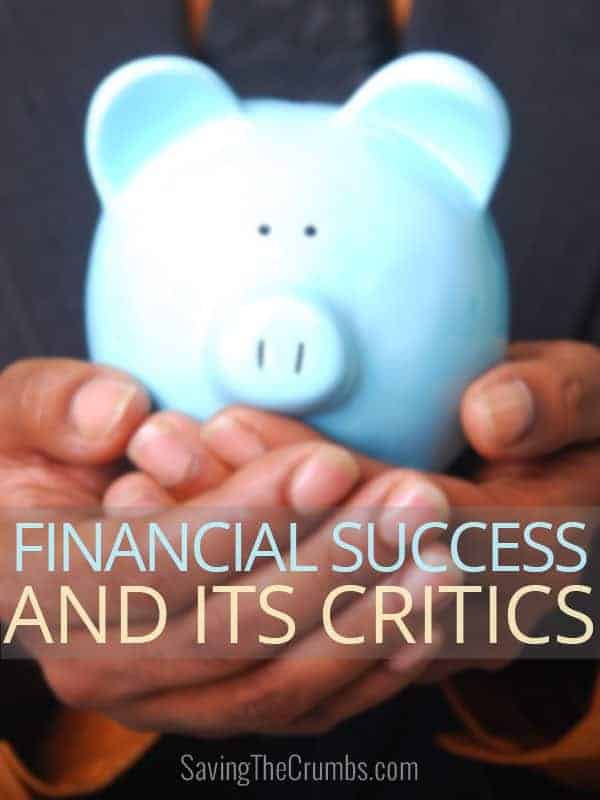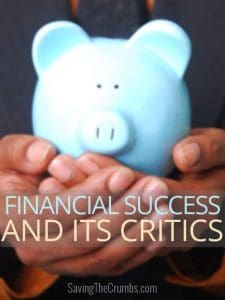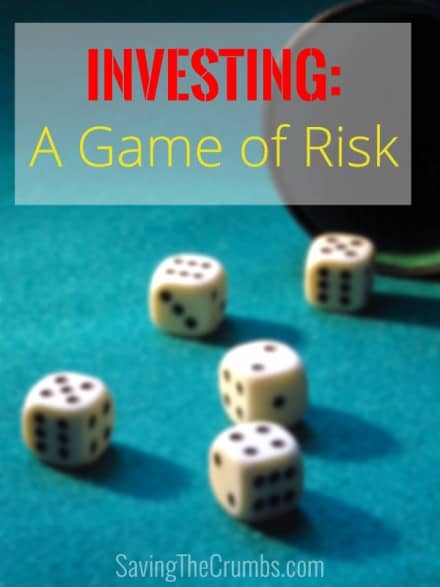How did he do this?
What’s his secret?
Check out this inspiring video about his story:
My Summary
Here are a few quick points that I picked up from his story:
- He listened, he learned, and he applied lessons on personal finance.
- He was a hard worker, not shunning it as something bad to avoid.
- He started invested early, putting in what seemed like insignificant amounts regularly for a long time, applying the Secret Ingredient to Investing.
- He invested and didn’t speculate, unlike so many who try to get rich quick.
- He showed that even though he had a (very!) small income, it didn’t stop him from getting rich.
- He even sent his kids to private school, instead of free public school!
- He pays off his credit cards.
- He has a generous spirit—now donating stocks to others and giving his time to educate others at his church.
- He was dyslexic, had difficulty reading, was unable to get advanced education but yet rather than making him a victim, he credits that disability as the reason why he succeeded!
His Numbers
The reporter made it clear that the $500,000 was referring ONLY to his investment portfolio, and does NOT include his paid-for home either! Wow! I suspect he probably qualifies for social security checks as well.
So at a 4% safe withdrawal rate, his investments can provide him $20,000 per year on top of his social security, and he has no rent or mortgage to worry about. Plus, he seems to share our philosophy about retirement since he’s still working too! Now that’s living the Crumb-Saver way!
This is a wonderful story that is powerful and inspiring. But I feel the need to take this moment to address something that’s bothered me for a long time.
Warning: A rant is about to begin.
A Word About Internet Critics
Whenever there are inspiring stories like this, it seems inevitable that critics come out of the woodwork to voice their unsolicited and ignorant opinions.
- “The numbers don’t add up, it’s not possible to do that on $12/hr, he’s got to be hiding something.”
- “He probably just got lucky gambling in the stock market.”
- “Just wait until the next stock market crash, he’ll get wiped out.”
- “It sure took him a long time to earn so little.”
- “Psshh, $500,000 isn’t THAT much money! That’s not enough to retire on.”
- “What a tightwad! He probably lived a deprived life.”
- “Oh, I wonder how much welfare assistance he got to be able to do that?”
- “His poor wife and kids, they probably never had a life.”
- “How come he never got a real job?”
Some of these were derived from the YouTube comments for this video, but others are paraphrases of common lines I hear regurgitated often on other blogs/stories about individuals who attained success of some sort.
Disparaging his lifestyle, insinuating deceit, diminishing the accomplishment—typical tactics of cowardly, anonymous online mudslingers who somehow find self-worth in criticizing others. In this age of social media, people fling their smug, unfiltered cynicism through their smartphones with a sense of superiority without even blinking. But what has it actually gotten them? Have their lives gotten materially better because they disparaged someone else’s ideas and success? Have they even benefitted anyone else reading those comments? Would they dare say the same thing if they were in person? If you’ve been on the web much at all, you know that this behavior isn’t only limited to stories like this one about Mr. Earl. It’s everywhere online.
So Why Do People Do This Anyway?
I can tell you why. It’s because this is their way of justifying their own failings and shortcomings. It’s the way to pacify their fear of change. It’s how to excuse the way that they are. It allows the narrative of financial victimhood to continue in their minds. It coddles them in their state of comfortable, complacent mediocrity. Let me translate what people are really saying to make this clear:
- “He just got lucky. I don’t want to admit that it probably took hard work since I’m lazy, so I’ll call it luck so won’t have to try to exert effort.”
- “Never mind that $500,000 is a hundred times greater net worth than I have even though I earn many times more per hour than Mr. Earl. That’s not enough to fund my inflated lifestyle so I’m just going to lambast him and not try to learn how I can do better myself.”
- “It sure took him a long time to earn so little. I wouldn’t bother exerting any effort in changing unless I can get rich quick!”
- “I can’t bear to be more disciplined in my spending and to reduce my lifestyle even though it’s propped up by credit cards, so since they must not have the appearance of supposed wealth like me, he must be a tightwad and his poor wife and kids must have never had a life.”
- “I don’t understand a thing about investments, how compound interest works, or how saving up little by little can actually result in large returns over the long-term, so I’ll just allege that the math doesn’t add up and claim he’s hiding something so I can continue on in my ignorance.”
Mr. Money Mustache calls these people “complainypants” and if you are a glutton for more punishment, check out his post “How To Tell If You Are A Complainypants.” Just beware of language.
Dare to Stand Out
Ladies and gentlemen, when we meet or hear of people like Mr. Earl, why not—instead of tearing them down—LEARN from them? Let’s not shy away from making tough choices, working hard, exerting effort, figuring things out, and accomplishing something that’s actually beneficial of positive change. Maybe someday we can be like Mr. Earl too.
Oh, and of course feel free to add your (nice) comments below. 🙂







